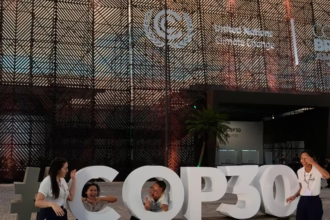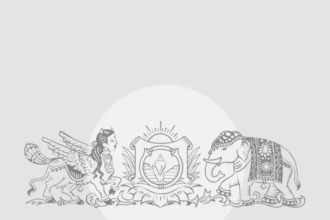
Image used for representation
| Photo Credit: V Raju
(This article forms a part of the Science for All newsletter that takes the jargon out of science and puts the fun in! Subscribe now!)
Ice creams and carbonated drinks aren’t just innocent treats anymore. There is now quantifiable scientific research warning about people using them to cool down on hot days, thus endangering their health.
In a new study published in Nature Climate Change, scientists from China, the UK, and the US reported that sugar consumption in the US rose significantly between 2004 and 2019 as temperatures increased and that this change was more pronounced in people with lower income or education levels.
This consumption was in the form of sweetened beverages and frozen desserts.
The researchers used individual, transaction-level data to study sugar intake and temperature. They found it to be strongest in the 12-30º C temperature range, during which sugar consumption increased 0.7 g per ºC per capita-day. It plateaued or declined beyond 30º C but the researchers pointed out that only 0.8% of the observations went that high. The humidity stayed the same throughout the range.
Sweetened beverages were the main source of sugar, which the researchers found people also consumed more as temperatures rose.
The study also found that people consumed more sugar in households with lower income or educational levels, rendering them more vulnerable to climate change by heightening the risk of adverse health conditions.
“It’s more about seeking cold and hydrating options, which often happen to be sugary. If people prefer water or ice, then rising temperatures wouldn’t necessarily increase sugar intake,” the study’s lead author and Cardiff University environmental science and sustainability lecturer Pan He told The Hindu.
Many Indian cities already regularly experience temperatures higher than 30º C. According to Dr. He, we can’t really say the findings of the new study will play out vis-à-vis India.
“Low-income groups are disadvantaged and tend to consume less healthy diets in both countries,” National University of Singapore assistant professor Sudatta Ray and research assistant Isabella Gupta said.
“However, in India, insufficient calorie consumption is a greater cause for concern among low-income households than the US, where the composition of the calories — whether from processed food or fresh fruits and vegetables — is a bigger problem.”
According to the Global Food Policy Report 2024, 16.6% of Indians were malnourished because of poor dietary habits, at least 38% ate unhealthy foods, and only 28% ate all five recommended food groups.
The 2024-2025 Economic Survey reported that the value of ultra-processed foods Indians consumed had ballooned by 42-times from 2006 to $37.9 billion in 2019.
India was already home to a quarter of the world’s adults living with diabetes in 2022.
According to market intelligence firm Ken Research, the carbonated soft drinks market in India is worth $19.5 billion and is driven by consumer preferences, “particularly among the youth, where carbonated drinks are a go-to refreshment option”. Despite being ultra-processed, this industry is driven by aggressive marketing campaigns, the launch of new flavours, and seemingly healthy “low calorie” options, among others, a Ken report noted.
“Given India’s high diabetes burden, rising sugar intake linked to heat could have serious public health implications. Urgent action—such as dietary education, fiscal measures, and other policy tools—may be required to address these risks in the context of climate change,” Dr. He said.
To tackle the problem of increased sugar consumption early on, the Central Board of Secondary Education (CBSE) earlier this year instructed over 24,000 affiliated schools to establish “sugar boards” so students could learn about the risks of excessive sugar intake. CBSE said that there has been a significant increase in type 2 diabetes in children over the past decade, which prompted this move.
From the Science pages
Question Corner
Flora and fauna
Published – October 22, 2025 02:17 pm IST















